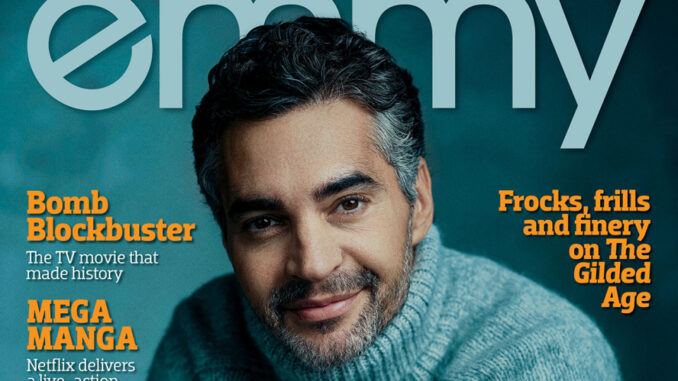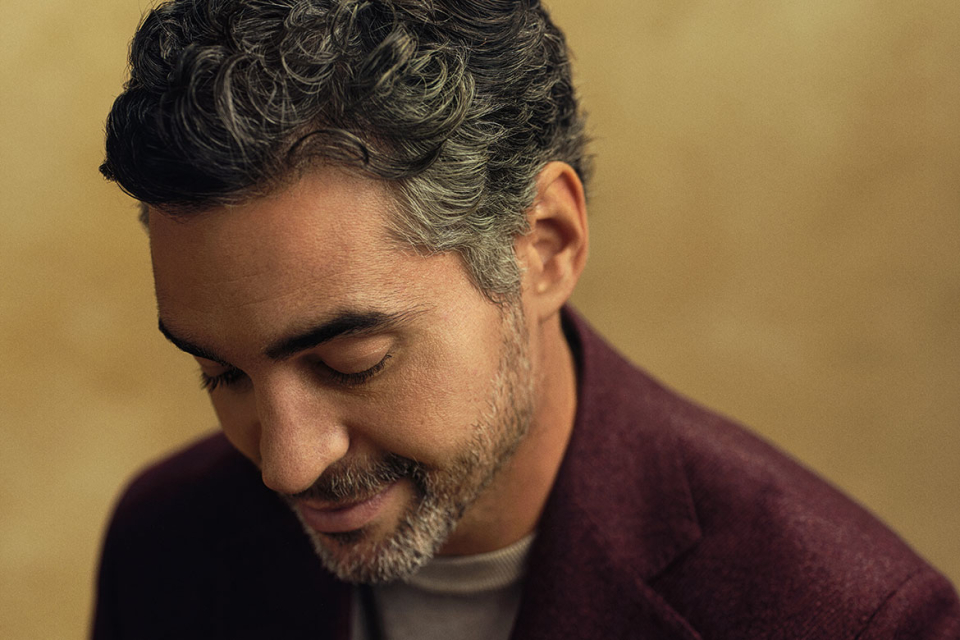
In Will Trent, Ramón Rodríguez breaks away from stereotypes to play a particularly skilled special agent.
It’s hard to believe, but Ramón Rodríguez, who plays the brilliant but tormented investigator Will Trent on the ABC series of the same name, almost didn’t get the role.
The biggest role of his career—ABC’s top-rated freshman drama for the 2022–23 season, which has been renewed for a second season, has been praised by critics, and has millions of viewers watching—almost didn’t happen.
“I wasn’t even sure if I was right for this role,” Rodríguez said in early July, weeks before the SAG-AFTRA strike. After nearly two decades on screen, including his breakout role as fan-favorite Omar Little’s (Michael K. Williams) boyfriend on The Wire, Rodríguez knows what it takes to commit to a show. “You’re in a series, you’re in bed for a very long time,” he says. “You need to make sure you’re aligned with the creators and writers. My goal was to create something unique and different, because there are so many cop shows out there. I wanted to make sure we were pushing the envelope. I needed it to make sense.”
Mission accomplished. Based on Karin Slaughter’s best-selling crime novel, Will Trent stars Rodríguez as an Atlanta-based special agent for the Georgia Bureau of Investigation. Orphaned at a young age, he still struggles with childhood trauma and a stifled sense of self related to dyslexia. But he has uncanny gifts that allow him to spot things other law enforcement professionals miss.
Will Trent makes sense for another reason. In Slaughter’s books, Will is white; on the show, Will, like Rodríguez, is Puerto Rican. “That’s one of the reasons I wasn’t sure I was right for the role,” he says. “People who read the books, I imagine they’re going to have a hard time, like, ‘Wait a minute — that’s not the Will Trent I imagined. He doesn’t look like the guy I imagined.'”
While this reimagining of the main character is a huge win for inclusion in a landscape where Latino faces and voices are rare, it comes in a way that some may find surprising. It’s only in the last few of the first thirteen episodes of the season that the audience learns anything about Will’s ethnicity. Growing up in a foster home, he had no idea of his heritage—until a big reveal in the season finale. That disconnect gave the proud Puerto Rican an opportunity to explore a complex character who didn’t know his ethnic identity.
“We all have these stereotypes and clichés [about Latinos] that are put out there,” says Rodríguez, who has played a number of street thugs. “But what’s interesting is, if he doesn’t know who he is, there’s no indication that he’s Latino. There’s no salsa music, there’s no Puerto Rican flag. It’s interesting in the sense of being able to strip away the ethnicity. It’s not about that, it’s just, ‘How can I be this character as authentically as possible?’ We don’t have to play Puerto Rican. We don’t have to see ourselves the way we’re usually portrayed.”

There is one notable difference between the grown, svelte Ramón Rodríguez as Will Trent and the guy audiences might recognize from The Wire and other characters in his younger days: his hair.
In his early roles, Rodríguez wore dreadlocks, a hairstyle traditionally worn by black people, at least in Rodríguez’s native New York, but also common among Puerto Ricans, Dominicans, and other Latinos—a symbol of cross-cultural bonding. Braids also evoked cultural connotations that Rodríguez now realizes influenced the roles he was cast in.
He wore dreadlocks in two episodes as a street kid in Rescue Me (2005, FX), again as gangster Damien Ortiz in Day Break (2006–07, ABC), and again in The Wire (2006–08, HBO) as Omar’s partner in crime Renaldo. “I used to walk into a room and they’d say, ‘Great, he’s the guy,’” he says, referring to his tendency to associate his dreadlocked self with drug dealers, thugs, and other stereotypes. “It was interesting. When I cut my hair and auditioned for [2009’s] Transformers: Revenge of the Fallen, that changed a lot of things for me.”
Discovering that a simple haircut can boost your career is the kind of invisible rule that young people of color often learn only through experience. That’s especially true in Hollywood, where image is everything. No one could fault Rodríguez for not knowing the rules of the trade; he grew up on the Lower East Side of
S. “I escaped some very precarious and dangerous situations growing up. Sometimes it was lucky. Sometimes I made the right choice.”
One night, he was hanging out in a pool hall when a friend invited him to shoot hoops, a choice that changed his life. He says basketball gave him a focus he lacked. “I know that had I not gone that night, I would be in a very different place today.” He won a scholarship to the Leelanau School, a prep school in Northern Michigan, where he was one of two Latinos. Apart from trips to Puerto Rico to see family, he’d never left Manhattan before.
“Going to the gym at night was terrifying,” he recalls of Michigan. “I did not understand what it was to be surrounded by trees and animals; I understood the concrete jungle. Being able to leave New York, I gained a lot of perspective.”
After two years playing point guard for Wheeling University in small-town West Virginia, Rodríguez transferred to NYU, where he earned a sports marketing degree. A chance audition for a Nike commercial became the bridge between his first love and acting. “I went because they were giving away sneakers,” he says. He performed a trick he’d perfected — keeping a ball spinning, even atop a pen in his mouth — and got cast. That led to more commercials, which led to TV roles.
On Fox’s 2014 crime drama Gang Related, Rodríguez played Ryan Lopez, a mole in the LAPD’s Gang Task Force. He was acting as a criminal again, albeit one whose double life made the character more complicated. But it marks a turning point; Rodríguez has since resisted playing street guys. “I’ve been lucky enough that, after getting work for a while, I can go, ‘You know, that’s not for me right now,'” he says. “I don’t have anything against [those parts], but I also feel like there should be other, positive figures we get to play. How many Latino roles are doctors, versus how many are in a criminal world of some sort?”
In its 2022 “Latinos in Media” report, the nonprofit think tank Latino Donor Collaborative said that only thirty-eight out of 1,462 primetime and streaming shows (2.6 percent) featured a Latino in a lead role that year. Of those, eighteen “portrayed Latinos negatively or perpetuated false stereotypes about the U.S. Latino community.”
Maid, drug dealer, gangbanger, downtrodden immigrant: nearly seventy years after Ricky Ricardo, one-dimensional portrayals of Latinos remain pervasive, which is why it’s not an overstatement to see Will Trent as a watershed moment.
Charles Ramírez Berg, who focuses on cinema and Latino imagery as senior professor in media studies at University of Texas at Austin, says characters like Will are refreshing. “Too often when a Latino shows up, that character has the burden of an entire ethnic group. We’re close to 20 percent of the population, so that means one-fifth of American life is Latino. That means the person that delivered papers your this morning, your doctor, your teacher, is Latino. Because that’s life. For too long, it was like [casting directors] couldn’t hire a Latino or Latina unless they’re playing Selena or something.”
